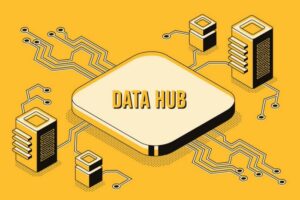How to Use Referential Data Management to Attract More Customers
Attracting new customers is one of the struggles that all businesses face. After all, you can never have too many—or even enough—customers. That’s why enterprises are going all out to get valuable insights into customer behavior and different markets using data analytics.
When you’re trying to identify buyer personas and new markets to penetrate, it’s of the utmost importance that your master data and reference data management (RDM) systems work together to provide you with actionable business intelligence. Continue reading to learn how to use RDM systems to attract more customers.
Ensure the consistency and accuracy of data across master data management platforms.

One of the greatest uses of reference data management is as a way to bolster your master data practices. Reference data indeed has many of the same characteristics as master data, but some important differences set them apart.
Whereas master data tends to deal with business entities, reference data is stagnant, and when it changes, it usually has implications that reverberate throughout entire business intelligence platforms. For instance, country codes, corporate codes, and units of measure are all types of reference data.
Referential data management systems aid in creating hierarchies within master data. In other words, reference data is concerned with categories of data rather than types of data. A robust RDM system combines data classification with data governance to ensure the integrity of data across multiple platforms, which allows for the creation of data maps and other data integration solutions.
Reference data management is much more secure and efficient than legacy business processes like creating databases and spreadsheets. As you can see, reference data management is integral to data quality and maintaining consistent data values across multiple data sets and platforms.
Identify new markets and cross segments of consumers.

One of the main business functions of reference data is identifying new markets and cross segments of consumers. Reference data management allows business users to recognize new types of customers.
When you recognize or create a new type of data classification, you have to also adjust business processes and best practices to ensure regulatory compliance in this new kind of data. Tibco, a leader in data science and RDM solutions, offers world-class RDM solutions that are affordable enough for small businesses and even data science majors. Not only does TIBCO offer affordable data science and RDM technology, but they also strive to make data analytics, storage, and manipulation easier to understand for all, business users and data scientists alike.
Fine-tune business processes to meet industry standards.

As mentioned before, the main goal of reference data management is to ensure the integrity and regulatory compliance of different kinds of data. Bad data carries serious consequences for business in the ways of time, money, and effort lost.
Companies rely on real-time data to make important decisions about their direction, and that means accuracy and quick access are paramount features of reference data solutions. Even though reference data sets tend to be static, meaning it rarely changes, when it does change, you’ll need an agile system that promotes flexibility and scalability. To ensure data quality, you need an RDM system that can help you keep up with the business rules and classifications that provide data governance for transactional data. That’s why business users ranging from suppliers to retailers and service providers utilize TIBCO’s RDM solutions for their data governance needs.
As important as master data is to business transactions, reference data is equally important to data governance. Employing the right RDM solutions can help business users to enhance connectivity between business entities and consumers. With big data revolutionizing the way we do and think of commerce, data management is more critical than ever, and RDM technology is essential to the cause.








